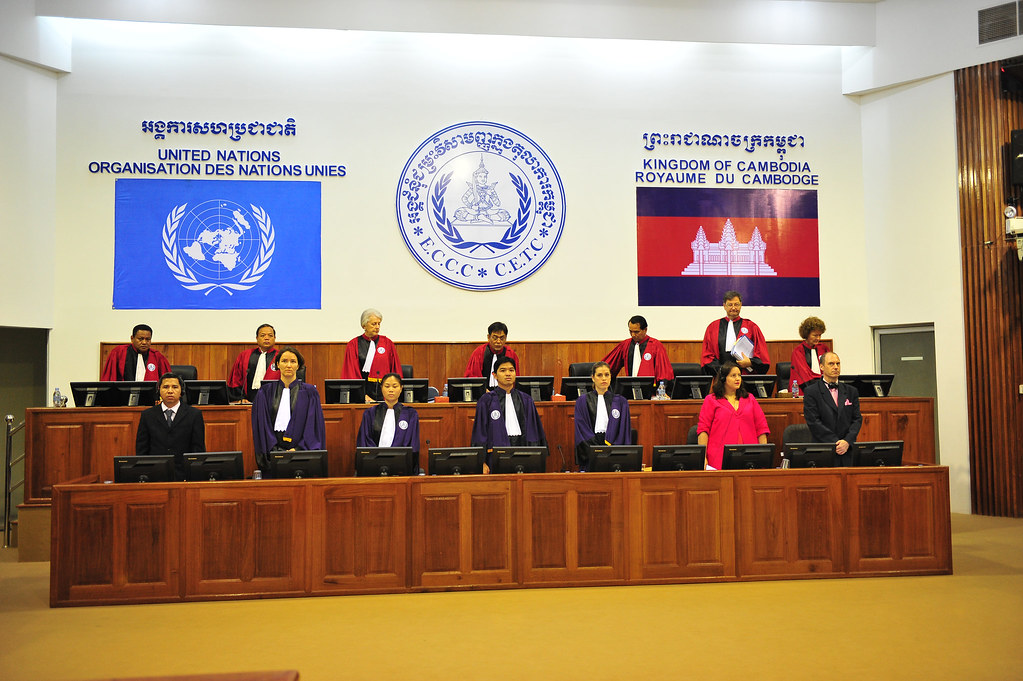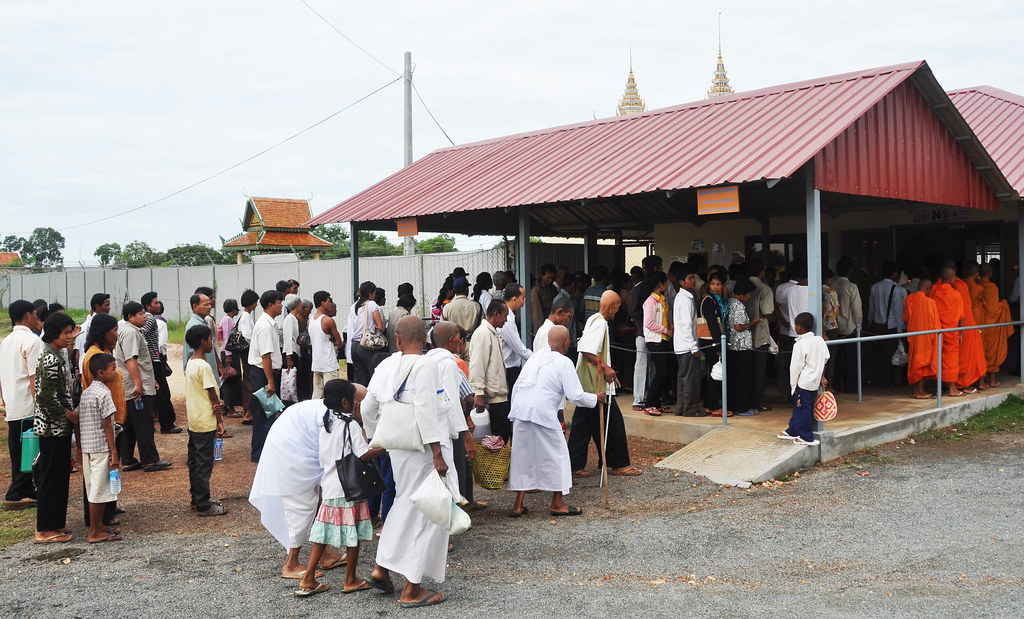James Bair contributes this guest post, the first in a two-part feature sharing differing perspectives on the Extraordinary Chambers in the Courts of Cambodia. James Bair is an attorney in Washington, D.C. and a contributor to Enough: the Project to End Genocide and Crimes Against Humanity.
______________________________________________
By James Bair

The ECCC, a UN-backed hybrid with jurisdiction over “senior leaders and those most responsible” within the Khmer Rouge, should not have been a court at all. When the Cambodian government first came to the United Nations in 1994 for help in trying the regime’s crimes, the UN recommended a Truth and Reconciliation Commission (TRC) similar to the one pioneered in South Africa. The Khmer Rouge’s atrocities had been so widespread, and so many people still living had been involved, that a criminal trial promised to be unwieldy and unsatisfying, both because it would try too few people and because the record it would build would be too limited, cabined as the law must be by rules of evidence. A TRC, on the other hand, would bring forward more victims, would tell more stories, and would hold more perpetrators accountable. Ideally, this would allow the country to move on with its future, having finally confronted its past.
The Cambodian government, still full of former Khmer Rouge members like Prime Minister Hun Sen, balked at this idea. The rules of a TRC are fluid and the testimony of its witnesses can be too unpredictable. The truth might get out of hand.
Nine more years passed, and a compromised court was born in 2003. The ECCC’s “hybrid” structure, which gives government-appointed Cambodian judges a majority in every chamber, has created both the appearance and the reality of political meddling and has deeply wounded the court’s credibility. But even without these structural flaws, a Tribunal would have been unlikely to satisfy victims.

With so many crimes and so many perpetrators, no tribunal could tell them that.
This could have been remedied. The ECCC could have been coupled, as in Rwanda, with local prosecutions for mid-level offenders and with a TRC to deal with other low-level perpetrators. But the Cambodian government has made clear that the five defendants charged by the Tribunal will be the only ones tried and that the ECCC will be the only source of justice available.
And so, the Court first endeavored to be everything to everyone. The victims believed (and often were led to believe) that it was for them – that the ECCC would be a place where their stories would be heard and acknowledged by a world that had abandoned them to Pol Pot’s brutality some 30 years ago. For many, the promise of Civil Party participation, for victims to have their own lawyers, their own agendas, and to confront the accused, was the entire point of the trials. In contrast, the Cambodian government believed that the Court would draw a line under a wretched chapter in its history, that the ECCC would say: “these people, and these people alone, were responsible for the crimes of the Khmer Rouge.” Yet each time that push came to shove, it was the victims who lost out and saw their rights curtailed.
True, satisfying victims is not the only motivation behind international justice. Ending impunity and the development of international law are both remarkably important goals, and I believe that the ECCC will contribute to each of these. The men and women with whom I worked at the Court, including Mr. Hale, are some of the finest lawyers and thinkers I know, and I believe their motivations to be beyond reproach. But Cambodia is a special case. At the tribunals at Nuremburg, Rwanda, Yugoslavia and elsewhere, the trials came close on the heels of the atrocities. In contrast, the ECCC opened its doors nearly thirty years after the Khmer Rouge were driven from power. Surely, justice in such a scenario must be firmly rooted in the needs and desires of victims lest it compound their suffering by rendering individual experiences irrelevant. We must remember that the ECCC exists in part because American bombs, French colonialism, and international inaction combined to permit the slaughter of nearly two million Cambodians. It seems perverse to allow those same bystanders to now dictate how victims and survivors must experience “justice.” A robust Civil Party regime, as first promised and envisioned, was a workable compromise, an acceptable injury. The muted version that the Court has since devised borders on insult.
These are not conclusions I arrive at lightly. However, I have found them reflected both in my experiences in Cambodia and among the diaspora community here in the United States. This past week, I was humbled to speak at Brandeis University along with two victims of the Khmer Rouge regime. These gentlemen, who suffered unspeakable tragedies, said unequivocally that they do not believe the Court could bring them justice. They see it as a tool of Hun Sen and as having no connection to the pain that they and their families suffered. Whether these accusations about the ECCC are true or not is barely relevant. If they are perceived as true, the damage is already done.
Case number two will surely lead to the conviction of some of the Twentieth Century’s most notorious criminals. But by endorsing this tainted, truncated process, the UN has helped Hun Sen’s regime deny victims what most would consider justice: a meaningful opportunity to tell their own stories. After thirty years, surely they deserve that much.
